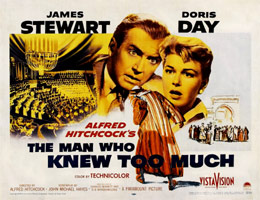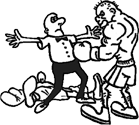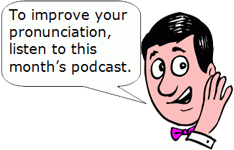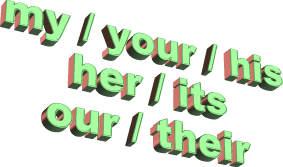FIRST AND SECOND CONDITIONAL CLAUSES

CONDITIONAL SENTENCES
Type
if
Main clause
1
Simple Present
If I win the lottery,
will (future simple)
I will buy a house.
2
Simple Past
If I won the lottery,
would + Infinitive (Conditional)
I would buy a house
Practise with the following exercises:
FIRST CONDITIONAL: EXERCISE 1 EXERCISE 2 EXERCISE 3
SECOND CONDITIONAL: EXERCISE 1 EXERCISE 2 EXERCISE 3
FIRST AND SECOND CONDITIONAL: EXERCISE 1 EXERCISE 2 EXERCISE 3
 · APRENDE UN POCO MÁS.
· APRENDE UN POCO MÁS.
PRONOMBRES RELATIVOS
Los pronombres relativos son:
who que, quién, el cual, la cual, los cuales, las cuales (para personas)
whom a quien, al cual, a la cual, a los cuales, a las cuales (para personas)
whose de que, de quien, del cual, de la cual, de los cuales, de las cuales, cuyo, cuya, cuyos, cuyas (para personas)
which que, lo que, el cual, lo cual, la cual, los cuales, las cuales (para cosas)
that que, el que, la que, los que, las que (para personas y cosas)
what lo que
a.) Who tiene las funciones de sujeto y su antecedente (el sujeto al que refiere) debe ser una persona, aunque puede ocasionalmente referir un animal personificado, como por ejemplo en cuentos.
The man who knew too much / El hombre que sabía demasiado
b.) Whom Es muy formal y se emplea en lenguaje escríto, no siendo muy habitual su uso en lenguaje hablado..
c.) Whose expresa posesión y pertenencia y se refiere únicamente a personas, (también excepcionalmente a animales y a nombres colectivos).
The family whose house we stayed in / La familia en cuya casa estuvimos
d.) Which se emplea como sujeto y como complemento y se refiere solamente a cosas o animales:
The car which is in the garage / El coche que está en el garage.
e.) That se emplea como sujeto o complemento directo y puede referirse a personas, cosas o animales:
The letter that came yesterday is from my mother / La carta que llegó ayer es de mi madre.
- Diferencia entre who y that -
Generalmente, es indiferente usar 'who' y 'that'. Sin embargo, existen diferencias entre ambos que hacen más apropiado el uso de uno u otro pronombre dependiendo de si se está identificando o no al sujeto.
Where is the girl (who / that) sells the ice cream? / ¿Dónde está la chica que vende el helado? (ambos usos, 'who' y 'that' son correctos)
This is Carol, who sells the ice cream / Ésta es Carol, la cual vende el helado.
This is Carol, that sells the ice cream (uso inadecuado de 'that')
'That' normalmente no puede ir precedido de una preposición
Después de superlativos y pronombres indefinidos debemos emplear 'that' en lugar de 'who'
It's the best film that I've ever seen / Es la mejor película que he visto nunca.
f) What generalmente hace referencia a acciones o situaciones.
I know what you're thinking / Sé lo que estás pensando
RELATIVOS DEMOSTRATIVOS
he who - el que / that of - el de, la de
those who - los que / those of - los de, las de
RELATIVOS COMPUESTOS
whoever cualquiera que (personas) / whomever cualquiera que (personas, más formal)
whichever cualquiera que (personas, cosas) / whatever cualquier cosa que
 Realiza algunos ejercicios prácticos sobre lo aprendido.
* Consulta nuestra completa gramática inglesa práctica para ampliar tus conceptos del lenguaje.
Realiza algunos ejercicios prácticos sobre lo aprendido.
* Consulta nuestra completa gramática inglesa práctica para ampliar tus conceptos del lenguaje.
* Amplia tu vocabulario en nuestra sección dedicada.
HI DEAR STUDENTS, PLEASE LOOK FOR EXPLANATION OF something, anything, someone, anyone, somewhere, anywhere:
THEN COMPLETE THE CHART.
QUERIDOS ESTUDIANTES ESTE CURSO ES PARA SER REALIZADO DURANTE EL CUARTO PERIODO. POR FAVOR PRESENTARLO EN SU CUADERNO.
¿CONOCES NUESTRA PAGINA PRINCIPAL? Pulsa aquí.(De ella parten todos nuestros cursos y tutoriales)
Este es nuestro curso multimedia bilingüe de Conversación y Expresión Oral en Inglés para niveles Básico a Intermedio. Por favor, antes de comenzar tu primera lección, lee lasINSTRUCCIONES en español. ¡¡ Desde ya te deseamos muchos éxitos !!
FIRST AND SECOND CONDITIONAL CLAUSES
Practise with the following exercises:  FIRST CONDITIONAL: EXERCISE 1 EXERCISE 2 EXERCISE 3 SECOND CONDITIONAL: EXERCISE 1 EXERCISE 2 EXERCISE 3 FIRST AND SECOND CONDITIONAL: EXERCISE 1 EXERCISE 2 EXERCISE 3 PRONOMBRES RELATIVOS
Los pronombres relativos son:
who que, quién, el cual, la cual, los cuales, las cuales (para personas) whom a quien, al cual, a la cual, a los cuales, a las cuales (para personas) whose de que, de quien, del cual, de la cual, de los cuales, de las cuales, cuyo, cuya, cuyos, cuyas (para personas) which que, lo que, el cual, lo cual, la cual, los cuales, las cuales (para cosas) that que, el que, la que, los que, las que (para personas y cosas) what lo que a.) Who tiene las funciones de sujeto y su antecedente (el sujeto al que refiere) debe ser una persona, aunque puede ocasionalmente referir un animal personificado, como por ejemplo en cuentos. The man who knew too much / El hombre que sabía demasiado  b.) Whom Es muy formal y se emplea en lenguaje escríto, no siendo muy habitual su uso en lenguaje hablado.. c.) Whose expresa posesión y pertenencia y se refiere únicamente a personas, (también excepcionalmente a animales y a nombres colectivos). The family whose house we stayed in / La familia en cuya casa estuvimos d.) Which se emplea como sujeto y como complemento y se refiere solamente a cosas o animales: The car which is in the garage / El coche que está en el garage. e.) That se emplea como sujeto o complemento directo y puede referirse a personas, cosas o animales: The letter that came yesterday is from my mother / La carta que llegó ayer es de mi madre. - Diferencia entre who y that - Generalmente, es indiferente usar 'who' y 'that'. Sin embargo, existen diferencias entre ambos que hacen más apropiado el uso de uno u otro pronombre dependiendo de si se está identificando o no al sujeto. Where is the girl (who / that) sells the ice cream? / ¿Dónde está la chica que vende el helado? (ambos usos, 'who' y 'that' son correctos) This is Carol, who sells the ice cream / Ésta es Carol, la cual vende el helado. 'That' normalmente no puede ir precedido de una preposición Después de superlativos y pronombres indefinidos debemos emplear 'that' en lugar de 'who' It's the best film that I've ever seen / Es la mejor película que he visto nunca. f) What generalmente hace referencia a acciones o situaciones. I know what you're thinking / Sé lo que estás pensando RELATIVOS DEMOSTRATIVOS he who - el que / that of - el de, la de those who - los que / those of - los de, las de RELATIVOS COMPUESTOS whoever cualquiera que (personas) / whomever cualquiera que (personas, más formal) whichever cualquiera que (personas, cosas) / whatever cualquier cosa que
* Consulta nuestra completa gramática inglesa práctica para ampliar tus conceptos del lenguaje.
* Amplia tu vocabulario en nuestra sección dedicada. HI DEAR STUDENTS, PLEASE LOOK FOR EXPLANATION OF something, anything, someone, anyone, somewhere, anywhere:THEN COMPLETE THE CHART.QUERIDOS ESTUDIANTES ESTE CURSO ES PARA SER REALIZADO DURANTE EL CUARTO PERIODO. POR FAVOR PRESENTARLO EN SU CUADERNO.
¿CONOCES NUESTRA PAGINA PRINCIPAL? Pulsa aquí.(De ella parten todos nuestros cursos y tutoriales)
| ||||||||||||
Este es nuestro curso multimedia bilingüe de Conversación y Expresión Oral en Inglés para niveles Básico a Intermedio. Por favor, antes de comenzar tu primera lección, lee lasINSTRUCCIONES en español. ¡¡ Desde ya te deseamos muchos éxitos !!
|
FOURTH TERM ( CUARTO PERIODO)
El segundo condicional se utiliza para hacer referencia a situaciones -improbables o irreales- que ocurrirían si se diera una determinada condición imaginaria que tiene pocas posibilidades de cumplirse, por ejemplo:Oraciones Condicionales: Segundo Tipo
If he won the lottery, he would buy a big ship.Si él ganase la lotería, él compraría un gran barco.
Observa que en este caso expreso lo que la persona haría si ganase la lotería, aunque no es muy probable que la gane.
If I were you, I would tell him the truth.
Si yo fuese tú, le diría la verdad.
Si yo fuese tú, le diría la verdad.
Aquí hago mención a una situación imaginaria de cómo actuaría yo si estuviese en el lugar de otra persona.
Para poder construír este tipo de oraciones comenzaremos con IF (si)seguido de la condición en tiempo pasado simple y finalmente expresando la consecuencia en condicional simple, como vemos en el cuadro a continuación:| IF | CONDICIÓN | CONSECUENCIA |
| Si | tuviese trabajo | ganaría mucho dinero |
| If | I had a job | I wouldl win a lot of money |
| IF | HE STUDIED HARDER | HE WOULD APPROVE THE TEST. |
| Si | él estudiase más duro | aprobaría el examen. |
| IF | YOU HAD A CAR | YOU WOULD ARRIVE ON TIME. |
| Si | tú tuvieses un automóvil | llegarías a tiempo. |
| IF | THEY SOLD THE HOUSE | THEY WOULD BE IN PROBLEMS. |
| Si | ellos vendiesen la casa | estarían en problemas. |
DO THIS EXERCISES ON YOUR COPYBOOKS
QUERIDOS ESTUDIANTES DE ONCE GRADO, QUIEREN GANARSE $170'000.000?
A competir académicamente y deportivamente
Hasta el 31 de julio de 2012 estarán abiertas las inscripciones para participar en las competencias deportivas y hasta el 24 de agosto fecha límite para las competencias académicas.
El Ministerio de Educación Nacional invita a los niños y jóvenes colombianos a conocer el proyecto Supérate, que busca fomentar el uso adecuado del tiempo libre a través del deporte, actividades académicas y jornadas escolares; mejorar la calidad y la permanencia educativa de los participantes; desarrollar las competencias ciudadanas; y consolidar semilleros deportivos e identificar talentos académicos y del deporte en los 600 municipios del país que impacta actualmente el proyecto.
Este programa nacional de competencias ofrece opciones deportivas, académicas y jornadas escolares complementarias para que los más pequeños tengan la posibilidad de cambiar los estilos de vida a partir del deporte y del aprendizaje y así fortalecer el tejido social.
Hasta el 31 de julio de 2012, las personas interesadas en participar en las competencias deportivas tienen plazo para inscribirse por su parte, para las competencias académicas lo pueden hacer hasta el 24 de agosto. Los niños y jóvenes pueden hacer sus inscripciones en la página oficialhttp://www.superate.gov.co/ Las eliminatorias se darán en fases y a nivel municipal, departamental, regional y nacional.
Para el Ministro de Hacienda, Juan Carlos Echeverry Garzón, "El deporte no sólo desarrolla a los niños, niñas y jóvenes sino que también es un factor de cohesión que une a las familias y por supuesto une al país. Cuando queremos superarnos y competir en deporte o en disciplinas académicas sacamos lo mejor del ser humano; cuando emulamos a aquel que es mejor que uno, nos volvemos mejores personas y logramos una mejor Colombia".
Para conocer la programación de las actividades en la que los niños y los jóvenes pueden participaringrese aquí.
Los tres ejes de acción del programa Supérate son:
Ingresa al Sistema Nacional de Competencias Deportivas y Académicas y conoce la programación de los eventos y de las competencias. Por último, el Gobierno trabaja en la extensión del programa para poder llegar a más municipios de Colombia con estas iniciativas. En el momento, el programa tiene una cobertura de 600 municipios impactando alrededor de 800 mil niños; para el 2013 se busca llegar a todo el país atendiendo a 1.800.000 niños y jóvenes.
Da clic aquí y conoce Supérate, el Sistema Nacional de Competencias Deportivas y Académica
Este programa nacional de competencias ofrece opciones deportivas, académicas y jornadas escolares complementarias para que los más pequeños tengan la posibilidad de cambiar los estilos de vida a partir del deporte y del aprendizaje y así fortalecer el tejido social.
Hasta el 31 de julio de 2012, las personas interesadas en participar en las competencias deportivas tienen plazo para inscribirse por su parte, para las competencias académicas lo pueden hacer hasta el 24 de agosto. Los niños y jóvenes pueden hacer sus inscripciones en la página oficialhttp://www.superate.gov.co/ Las eliminatorias se darán en fases y a nivel municipal, departamental, regional y nacional.
Para el Ministro de Hacienda, Juan Carlos Echeverry Garzón, "El deporte no sólo desarrolla a los niños, niñas y jóvenes sino que también es un factor de cohesión que une a las familias y por supuesto une al país. Cuando queremos superarnos y competir en deporte o en disciplinas académicas sacamos lo mejor del ser humano; cuando emulamos a aquel que es mejor que uno, nos volvemos mejores personas y logramos una mejor Colombia".
Para conocer la programación de las actividades en la que los niños y los jóvenes pueden participaringrese aquí.
Los tres ejes de acción del programa Supérate son:
- Supérate con el saber: Competencia académica en cinco áreas: inglés, matemáticas, lenguaje, ciencias naturales y ciencias sociales, en las que podrán participar todos los estudiantes de 5°, 9° y 11° grado de colegios públicos y privados de todo el país.
- Jornadas Escolares Complementarias Supérate: Espacios y experiencias deportivas, académicas y culturales en la jornada contraria al horario de clase de los estudiantes.
- Supérate con el deporte: Competencias deportivas para niños y adolescentes escolarizados y no escolarizados entre los 7 y 18 años, en siete disciplinas: ajedrez, atletismo, baloncesto, fútbol, fútbol de salón, porrismo y voleibol. Eventos deportivos localizados por departamentos.
Ingresa al Sistema Nacional de Competencias Deportivas y Académicas y conoce la programación de los eventos y de las competencias. Por último, el Gobierno trabaja en la extensión del programa para poder llegar a más municipios de Colombia con estas iniciativas. En el momento, el programa tiene una cobertura de 600 municipios impactando alrededor de 800 mil niños; para el 2013 se busca llegar a todo el país atendiendo a 1.800.000 niños y jóvenes.
Da clic aquí y conoce Supérate, el Sistema Nacional de Competencias Deportivas y Académica
ACTIVITY TO LEARN NEW VOCABULARY
DO THE QUIZZES AT THE END OF THIS EXERCISE..
Adjectives
Relative pronouns - who, which, whose
Relative clauses with who/which
who: when we talk about people
which: when we talk about things
whose: instead of his/her or their
We also use that for who/which.


Exercise on Relative Clauses (Contact clauses)
. Listen to the text read at normal speed. (Primero escucha el dictado a una velocidad normal)
 2. DICTATION – Listen and write. Use the pause button on your media player if you need to.
2. DICTATION – Listen and write. Use the pause button on your media player if you need to.
(Escucha y escribe lo que oyes. Utiliza la pausa en tu reproductor si lo necesitas)
 3. Listen to the text again and check your dictation. (Escucha el texto de Nuevo y comprueba lo escrito)
3. Listen to the text again and check your dictation. (Escucha el texto de Nuevo y comprueba lo escrito)
(Escucha y escribe lo que oyes. Utiliza la pausa en tu reproductor si lo necesitas)
The Passive
 Complete the second sentence so that it has a similar meaning to the first sentence, using the word in bold (negrita). Do not change the word in bold..
Complete the second sentence so that it has a similar meaning to the first sentence, using the word in bold (negrita). Do not change the word in bold..
| 1. A friend of mine showed us a great new shopping application. SHOWN We a great new shopping application by a friend of mine. 2. They won't let you take photos inside. ALLOWED You to take photos inside. 3. They should investigate privacy and data protection on the Internet. INTO Privacy and data protection needs on the Internet. 4. They grow a lot of rice in China. IS A lot of rice in China. 5. The government took control of another bank. TAKEN Another bank the government. 6. My neighbour took care of my plants when I went to Cyprus. AFTER My plants by my neighbour when I went to Cyprus. 7. They say children in Europe are becoming more and more hyperactive. SAID Children in Europe more and more hyperactive. | 
A friend of mine showed us a
great new shopping application |
Elige la palabra correcta.
| A Day in the Life of an English Teacher I at 7.30 or 8 o'clock and I have breakfast. I usually have cereal for breakfast and a cup of coffee. I have breakfast I look at the news and weather on my phone. At 8.30 I at my desk and start working. I my email and write messages on Facebook and Twitter. Then I work on my lessons and correct my student's homework. At 11 o'clock I have a and at 12 I go to the gym for an hour to some exercise. I have lunch at 2pm and I usually have a siesta for 15 minutes. I usually have class in the afternoon and I until 9.30 or 10 o'clock at night. I always . My school is about 15 or 20 minutes from my flat. I have something to eat when I and I watch TV to relax for an hour before I go to bed. Sometimes I read in bed until asleep. |  |
CURSO DE INGLES SEGUNDO PERIODO:
INICIE SU CURSO DE ACUERDO CON SU NIVEL.
JOKE of the month (Chiste del mes)
 A Kindergarten teacher was observing her classroom of children while they were drawing. She would occasionally walk around to see each child's work. A Kindergarten teacher was observing her classroom of children while they were drawing. She would occasionally walk around to see each child's work.As she got to one little girl who was working very hard, she asked what the drawing was. The girl replied, 'I'm drawing God.' The teacher paused and said, 'But no one knows what God looks like.' Immediately, and without looking up from her drawing, the girl replied, 'They will in a minute.' *to draw = dibujar / Kindergarten = jardín de infancia |
RINCÓN DEL MISTERIO
The Case of the Dead Boxer
Tony Jack's worldly possessions were laid out on a small table in police headquarters. They consisted of a T-shirt, sneakers, and white cotton trousers. In a pocket of the trousers was a card.  The card read: July 28. Your wght, 173 lbs.; Your fortune, You will enjoy a long life. "His life lasted 22 years," Inspector Hobbs told Dr. Hall. "Late last night," said the inspector, "we got a call to come to the carnival. Somebody had started up a Ferris wheel. We found a male corpse jack-knifed over a strut. At first I thought the guy had been beaten to death -- his face was so battered. Then I recognized Tony. "Last night Tony fought Killer Malone for the state middleweight title," he continued. "Tony took a pounding. We know he left the arena still pretty dazed. He must have come out to the carnival. He used to be a roustabout, and he knew his way around. "It looks like he got here after closing," said the inspector, "used the scale, and then started up the big wheel. He took a ride and fell out. The medical examiner says he died instantly," The famed criminologist contemplated Tony's possessions. "He might have been killed elsewhere and hung on the strut," said Hall. "I heard rumors of a fix in the Malone fight. "It looks to me like Tony refused to take a dive and the mob made him pay the full price. The killers apparently did a clumsy job. To avoid giving themselves away, they changed his clothes and staged the scene out at the Ferris wheel."
How did Hall know?
|
- ¡Hey guys if you have doubts about English grammar look this link:
- Please look this video in order to do a similar one for the next class. Remember you must use passive voice.
FEBRUARY 29/12
HI GUYS HERE A LINK TO PLAY AND LEARN IRREGULAR VERBS:
http://www.quia.com/hm/7121.html
THIS LINK TO PRACTICE PASSIVE VOICE. YOU MUST CHANGE THEM YN INTERROGATIVE FORM.
http://www.mes-english.com/flashcards/files/passive2.pdf
What's the verb?
| Example: money / someone's life / energy 1. your way / your wallet / your temper 2. a trip / strike / a diet 3. a mistake / a mess / the bed 4. a business / a marathon / away 5. a lot of weight / your jacket / the TV 6. vegetables / a beard / old |  |
A veces en inglés encontramos dos palabras que dan sentido a una idea o concepto y que se unen con "and". El orden de las palabras normalmente es fijo. Por ejemplo: "fish and chips" (no se dice chips and fish).
| 1. When I sit down to work at my desk, I like it to be . 2. Before we make a decision I think we should discuss the of the situation. 3. - What would you like to drink? - I think I'll have a . 4. Nobody taught me how to use the new software. I learnt by . 5. We had a lovely holiday in the countryside. I love the of small villages. 6. Do you fancy cereal or for breakfast? 7. I've decided to invest in some . 8. Shall I print this document out in colour or ? 9. We had terrible weather in Scotland. For three days we had storms with . 10. , I apologise for the delay. The presentation will start in about five minutes. 11. I don't know why you're so stressed about the interview. It's not exactly a matter of you know. 12. The problem with the kids of today is that they don't know the difference between . | 
When I sit down to work
at my desk, I like it to be ... |
ADJETIVOS POSESIVOS
Los adjetivos posesivos en inglés hacen referencia al poseedor y no a la cosa poseída y se usan con más frecuencia en inglés que en español.
Preceden normalmente a los sustantivos que indican partes del cuerpo, parentesco, vestimenta y objetos personales, nombres que se usan en español con el artículo determinado:
John is washing his hands / John se lava las manos (sus manos)my, mi(s), mío
- Se utiliza my para indicar que algo pertenece o se relaciona con uno mismo.
That's my watch / Ese es mi relojyour, tu(s), su(s)
- Se utiliza your para indicar que algo pertenece a la persona a la que se está hablando. Equivale al 'tu, su / vuestro, vuestros' español. Fijate que el tratamiento en inglés no cambia, a diferencia de la distinción en español del tú y el su (de usted).
I like your shoes / Me gustan tus zapatos his, su (de él)
his, su (de él)
- Se utiliza his para referirnos o indicar la pertenencia de algo a una persona de sexo masculino.
This is his tie / Ésta es su corbataher, su (de ella)
- Se utiliza her para referirnos o indicar la pertenencia de algo a una persona de sexo femenino.
She's broken her arm. / Se ha roto el brazoits, su(s) (de una cosa)
- Se utiliza its para referirnos o indicar la pertenencia de algo a una cosa, lugar o animal. También puede usarse cuando nos referimos a un bebé.
The bird is in its cage / El pájaro está en su jaulaour, nuestro
- Usamos our para referirnos o indicar la pertenencia de algo a un grupo de más de una persona entre las que nos incluimos.
Our house is in the centre of the town / Nuestra casa está en el centro de la ciudadtheir, su(s) (de ellos)
- Usamos their para referirnos o indicar la pertenencia de algo a un grupo de más de una persona entre las que no nos incluimos
What colour is their parrot? / ¿De qué color es su loro?
Preceden normalmente a los sustantivos que indican partes del cuerpo, parentesco, vestimenta y objetos personales, nombres que se usan en español con el artículo determinado:
John is washing his hands / John se lava las manos (sus manos)my, mi(s), mío
- Se utiliza my para indicar que algo pertenece o se relaciona con uno mismo.
That's my watch / Ese es mi relojyour, tu(s), su(s)
- Se utiliza your para indicar que algo pertenece a la persona a la que se está hablando. Equivale al 'tu, su / vuestro, vuestros' español. Fijate que el tratamiento en inglés no cambia, a diferencia de la distinción en español del tú y el su (de usted).
I like your shoes / Me gustan tus zapatos
 his, su (de él)
his, su (de él)- Se utiliza his para referirnos o indicar la pertenencia de algo a una persona de sexo masculino.
This is his tie / Ésta es su corbataher, su (de ella)
- Se utiliza her para referirnos o indicar la pertenencia de algo a una persona de sexo femenino.
She's broken her arm. / Se ha roto el brazoits, su(s) (de una cosa)
- Se utiliza its para referirnos o indicar la pertenencia de algo a una cosa, lugar o animal. También puede usarse cuando nos referimos a un bebé.
The bird is in its cage / El pájaro está en su jaulaour, nuestro
- Usamos our para referirnos o indicar la pertenencia de algo a un grupo de más de una persona entre las que nos incluimos.
Our house is in the centre of the town / Nuestra casa está en el centro de la ciudadtheir, su(s) (de ellos)
- Usamos their para referirnos o indicar la pertenencia de algo a un grupo de más de una persona entre las que no nos incluimos
What colour is their parrot? / ¿De qué color es su loro?
DICTATION
LISTEN TO THE FOLLOWING EXERCISE.
LISTEN AND WRITE.
MARZO 23 DE 2012
SEGUNDO PERIODO
( second term)
CURSO DE INGLES SEGUNDO PERIODO:
PRUEBA DE NIVEL AQUI:http://www.mansioningles.com/pruebanivel/pruebanivel1.htmINICIE SU CURSO DE ACUERDO CON SU NIVEL.
EXCELENTE VIDEO PARA TENER EN CUENTA
POR QUE ES IMPORTANTE APRENDER IDIOMAS?
QUE NO LES PASE LO MISMO.
http://www.youtube.com/watch?v=tlzNGCBp1TE
LEE EL SIGUIENTE TEXTO Y DESARROLLA LAS ACTIVIDADES EN TU CUADERNO:
|






























if tou have any doubt, please ask me.
ReplyDeletehi!! teacher, I have a question, is necessary do all the one unit for this monday? or no.
ReplyDeleteWhat are you talking about?
ReplyDeleteteacher Naylla asked you that is necessary do all the one unit of the course for tomorrow
ReplyDeleteAngie Lopez♥
hello teacher.
ReplyDeletethe blog is very interesting!!!!
hello Teacher, Naylla and Angie.
ReplyDeletei believe that is make by week
Hello guys, the truth you must finish your level on the second term.
ReplyDeleteI hope ypu learn a lot with this course.
mmmm I`m Lazy Doing All the curse... so many exercise !!! At : Andrea Medina 11-2
ReplyDeleteHello teacher, it course is the best, I learned and i improved my vocabulary.Thanks you :) M.Camila Prada 11-4
ReplyDeleteThanks God. finally someone understands me.
ReplyDeleteSaray Cristancho. 11-4
ReplyDeleteHello teacher!!
Thanks for all. this blog is very interactive and interesting
mmmm, teacher, i also understand you and i am learning a lot
ReplyDelete:)
:)
ReplyDeleteThis Blog is very interesting :)
DeleteAnd the curse is we can learn much more!
Bye teacher!
Att: M. Daniela Rueda
Jessica Velandia♥
ReplyDeleteHi Miss!!
Thanks for this period, My favorite part was entrevista and magazine, was creative.
In the Blog and curse I could learn more.
Bye.
Hi Miss :)
ReplyDeleteIt was to remind you that I already finished the course at 100%!!!
Andrea Carrascal Romero :D
hi! teacher, i want thank you,this blog is Amazing, i love this web site! , i have learned lot, teacher thank you!!!
ReplyDeletethank you for your attention bye!
by :naylla mojica 11-4 :)
WOOOWW!! CONGRATULATIONS!, Miss Tereza Ariza!. this is GREAT!!
ReplyDeleteamazing ♥♥
by: Naylla mojica 11-4
Thanks naylla it is thanks to you and your classmates.
ReplyDelete